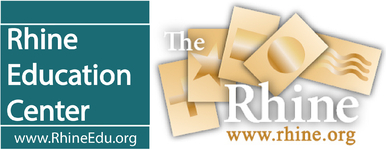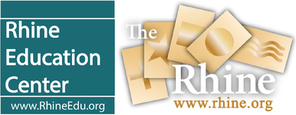Syllabus: Introduction to Parapsychology
Students who complete this course with a passing grade will receive a certificate of completion from the Rhine Education Center.
About the Course
This 8 week course is designed to introduce students to the field of Parapsychology and what parapsychologists study. Topics will include an overview of the phenomena (Telepathy, Clairvoyance, Precognition, Psychokinesis, and Survival Issues), history, research methodologies in the lab and for field investigation, and related issues that make up the vibrant field of scientific parapsychology. Also covered will be the major criticisms and critics of Parapsychology and a look at fraud as it applies to professionals and to consumers. The course textbook is Introduction to Parapsychology, 5th edition by Harvey Irwin and Caroline Watt, and will be supplemented by additional articles.
Required Text: Introduction to Parapsychology, 5th ed. by Harvey J. Irwin & Caroline A. Watt. McFarland & Company: 2007. Available from Amazon.com and other booksellers.
Additional articles will be assigned and provided in the classroom, or linked from the classroom.
Course Outline
Week 1: INTRODUCTION AND OVERVIEW: What is Parapsychology?
-
-
- Definition of Terms
- Scope of the phenomena
- What makes psi research a science?
- The Scientific Method
- Popular Misconceptions: Parapsychology, the Occult & the New Age
- The Interdisciplinary Nature of Parapsychology; where it overlaps with other fields of science
-
Week 2: A LITTLE BIT OF HISTORY: An Overview
-
-
- The Roots of Psychical Research
- Spiritualism, Empirical Science and the Serious Investigation/Research of Psychic Experience
- The Society for Psychical Research (and the ASPR)
- Seances and Science in the early 20th Century
- The Rise of Parapsychology and Controlled Laboratory Research
- The Duke Era
- Psi Research in the 2nd Half of the 20th Century
-
Week 3: EXTRASENSORY PERCEPTION: An Overview
-
-
- Phenomenology of ESP: Spontaneous ESP Experiences
- Conceptual Issues
- Experimental Research: Methodologies and Findings
- Theoretical Considerations
-
Week 4: PSYCHOKINESIS: An Overview
-
-
- Phenomenology of PK: Spontaneous PK Experiences
- Conceptual Issues
- Experimental Research: Methodologies and Findings
- Theoretical Considerations
- Mid-Term Quiz Available
-
Week 5: PSYCHOKINESIS: Special Topics AND PSYCHIC FRAUD OVERVIEW
-
-
- Experimenter Effect
- Experimental Research: Healing / DMILS
- Macro-PK
- Poltergeists
- Psychic Fraud:
- In the “Wild”: Psychics, Mediums, Magicians, and Mentalists
- In the Laboratory: Controlling for Potential Fraud
-
Week 6: SURVIVAL OF BODILY DEATH: An Overview of Concepts and the Evidence
-
-
- What is Consciousness? What Might Survive?
- What is the Evidence for Survival?
- Concepts
- Out of Body Experiences
- Near Death Experiences
- Apparitional Experiences
- Mediumship & Research
- The Super-Psi Hypothesis vs. the Survival Hypothesis
-
Week 7: FIELD RESEARCH AND INVESTIGATIONS
-
-
- Applying Experimental Parapsychology to Field Research and Vice Versa
- How Parapsychological Field Investigation Differs from Methodologies of Modern Ghost Hunters (and Why)
- Apparitions
- Hauntings
- Poltergeists
- Reincarnation
- How Good is Evidence Gathered in Field Investigation & Research?
-
Week 8: EXPLANATIONS, CORRELATIONS, CRITICISMS, IMPLICATIONS & APPLICATIONS and WRAPPING UP
-
-
- Are ESP & PK Two Sides of the Same Coin?
- Key Correlates to ESP and PK: Personality, Belief, Environmental, etc.
- Criticisms of Parapsychology
- Implications of ESP, PK & Survival
- Applied Psi
- Course Summary and Wrap Up
- Final Quiz Available
-
Grading for this course
All students are considered to be auditing the courses, but students may choose to take this course for a letter grade. Whether being graded or not, all students are encouraged to participate fully in this class and join in the online discussions. This provides an opportunity to get the full experience of the online class and learn the most about the topics that are presented.
Students taking this course for a letter grade will be evaluated using the following information and every student who completes the course with a passing grade will be awarded a Certificate of Completion from the Rhine Education Center.
| Grading and Assessments | |
| Discussion Participation (40% of your grade) | |
|
Engagement with discussion forums throughout the course (total 40%)
|
|
|
Assessment I (30% of your grade)
|
|
|
Multiple Choice and/or short answer test (submitted online).
|
|
|
Assessment II (30% of your grade)
|
|
|
Multiple Choice and/or short answer test (submitted online).
|
|

